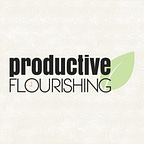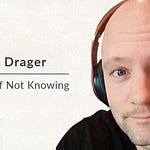Today’s guest is Parker Stevenson, a musician turned corporate manager, turned member of Evolved Finance. Evolved Finance is a bookkeeping, financial consulting, and business education company dedicated to helping online entrepreneurs create profitable and healthy businesses. Charlie and Parker talk about using business financial awareness as a fuel for growth. They discuss the mistakes entrepreneurs make with their money, and some general guidelines on how to manage the money you do make. No matter where you are in your creative or entrepreneurial journey, your financial reports can tell you where, or how your business might grow.
Key Takeaways:
3:20] – For many creative people, entrepreneurs, or small business owners, talking about financing and money is not something they want to do. On the flip side, this can be something that makes a huge difference in their business thriving.
[4:15] – Parker comes from one of these creative backgrounds – his family was very musical and he was in a band in LA, but while he was in school he also got a business degree. His musical background helped his next corporate experience (with Adidas), because while he was in the band he was essentially running his own small business with his band. He worked his way up at Adidas but was missing aspects of being a musician. His current position with Evolve Finance allows him to combine the best of both worlds – the entrepreneurial side of being a musician and the stability of the corporate world. At Evolve, they help online business owners and entrepreneurs manage the financial side of their business through bookkeeping and do other financial business coaching.
[7:25] – Parker shares some of the important lessons he learned through his previous background that he is able to apply to his position today. The first is the hustle involved in being a musician – you have to create the thing you’re selling as well as market it, network, and keep the “business” operating. As a musician, he was also always seeking opportunities. In the corporate world, he learned how to operate a complex organization, which he was able to directly apply to the branding and operational processes at Evolve.
[10:25] – Sometimes making the jump from being in corporate to being an entrepreneur is hard because you go from being a specialist to being a generalist. Knowing which category you fall in will be helpful as you move forward in your business so you know if there are areas where you’ll need to get some help or outside expertise. There is also a lot of personal investment when you’re selling a product that you’ve created.
[14:05] – One of the phases many of the clients at Evolve go through is once they scale to a large enough size, they are usually looking for someone who is a generalist, like a business manager or operations manager, who can handle several things at once. This is a game changer for many small businesses, and allows you as the entrepreneur to focus on your creative work.
[16:30] – When looking for opportunities, creatives have a tendency to go after too many opportunities and chase too many revenue streams. Financially, chasing an additional revenue stream might actually deplete the other one. Parker makes the analogy of a business operating on two batteries: a money battery, and a time battery. It may take some experimenting to see what combination is going to maximize both your time and money.
[20:35] - There is a humility in letting the numbers tell you what is actually working. Sometimes the things we want to be successful are not actually the things that are the most profitable for the business. Many new entrepreneurs don’t realize how much money they can make off of one thing.
[23:45] - Today, it’s easier to advertise across several platforms, and it’s easier to find your audience. There is not as much of an upfront cost to find your audience. If you can afford to invest a little bit of money up front for advertising your product, you may be able to save some time for content creation.
[28:50] - What areas should new businesses invest in to get the most bang for their buck? In today’s day and age, it’s important to invest the most money in your website and your software. Once you have that, you can do a lot on your own. The next big investment would be labor, whether it’s people to help you create or project-type contractors to help you manage. Advertising is also another area where successful businesses are investing. Be cautious about over-investing in these areas too soon. Charlie talks about the benefits of saving a little on your website investment to get good copyrighting from the start.
[34:55] - Some of these investments may seem like a lot of money, but from a business perspective, these long-term investments will continue to bring you money. Making small investments in the early stages can help your business grow faster.
[37:15] - Many times when we’re assessing our strategic opportunities, we compare the good points of our current decision against the bad points of a different decision. A better way to do this is to consider the disadvantages and advantages of your current decision, and compare those to the disadvantages and advantages of the other different decisions.
[41:10] - There are some baseline ratios that indicate a healthy business. For labor, you want 20-35%, depending on your type of business. Advertising costs can vary, but Parker notes the importance of getting a positive ROI; it’s not necessarily about how much you’re spending, but about how much you’re bringing in for each dollar you spend on marketing. The profit margin should be considered the most, though it is also dependent on your situation. Most businesses should strive for 30%-50% profit.
[46:45] - As you’re in different stages of your business, these ratios might shift, and that is okay! If you’re hiring, margins might be tight for a bit, but you’re opening up the business to be able to serve more clients. These ratios might also change depending on whether your business is a service-based business or a product-based business.
[50:00] - When you’re ready to hire someone new, you have to look at your profit margin to see if you can afford to bring someone new to the business. Again, this should be evaluated depending on whether you’re a service-based or product-based business. Rather than focusing on a number or ratio, you should ask yourself whether hiring a new person is really going to free you up to do more creative work. If you feel like you’re going to get a good return on the labor investment, find the money and figure it out.
[56:30] - A lot of small business owners talk about profit without including their owner’s pay. If you know your business needs to pay you, make sure you include that in your profit margin. You don’t have a profitable business if your business is not able to pay you. You also have to make sure you’re saving money for taxes, anywhere from 30%-40%. For a smaller business, putting away 20%-25% should put you in a good place.
[1:00:15] - Your P&L (profit & loss) statement is important to make sure you’re capturing all of your business expenses so your profit is 100% accurate. You also want to make sure these things are accurate for filing taxes. It’s also important to get an accountant for taxes - you don’t want to do it by yourself and risk getting in trouble.
[1:03:25] Parker’s invitation and challenge to listeners is to take a look at where you’re at for the year. Look all the way back to January and see how those months look, and challenge yourself to understand what’s going on with the money in those months. Getting to know your numbers in a way that’s clear and easy to understand can change the way you start to see your business.
Mentioned in This Episode:












